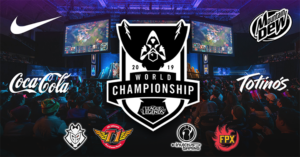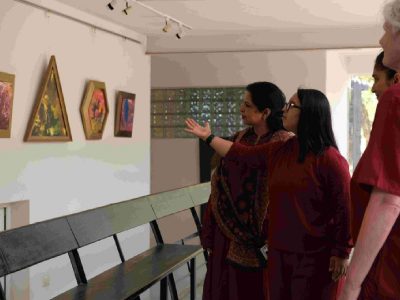With sports all over the world coming to a halt during the Covid-19 crisis, esports have made a huge surge as people sit at homes
The Covid-19 pandemic has stilled sports stadiums and arenas into silence, with players kept in lockdown. But in this environment, a tournament is taking place, with participation from players across countries like India, Bangladesh and Sri Lanka. In fact there are 256 teams participating in this tournament, with the opportunity to win prize money worth Rs 70,000.
The tournament in question is the Valorant Esports tournament, that will be played online with players participating in this major tournament through the comfort of their homes.
In the quarantine period, India has seen a surge in online gaming and sports simulation from stay-at-home fans. Enter eSports, or electronic sports—a digital media format where virtual game-play is streamed as video content, just like football matches, with players raking in millions. With social distancing, self-quarantine and containment becoming the key weapons in the fight against Coronavirus, people are left with playing online games and watching other people play from computer or TV screens at home. Some of the popular titles in the Indian eSports arena include League of Legends, Fortnite, PUBG: Mobile, FIFA 20, Counter Strike: Global Offensive and DotA, among others.
The world of competitive video-gaming was already a billion-dollar industry in 2019, a five-fold increase from 2014. “eSports is a sport because the speed at which a person is reacting to images on the screen is the fastest in the world. The speed at which these kids’ fingers move on a keyboard or on a screen are unimaginably high for anyone else. So it actually comes closest to Formula One, where your hands are on a steering wheel and you’re going at 300-400 km an hour with no room for error,” says Akshat Rathee, co-founder of Nodwin Gaming which was launched in 2014 and is headquartered in Gurugram. Casual games like Candy Crush or titles online poker, Rathee emphasises, do not qualify as eSports, which he feels is quite a misunderstood genre of video games.

With the popular gaming tournament DreamHack launching in Mumbai in 2017, India arrived in the international league of eSports, with prize pools seeing a steady upward climb since then. 2019 was a great year for eSports in India, but the worst year of global health in a century has not dented the skyward trajectory of this gaming sector.
“We are seeing a very high demand for our titles. The world is talking about recession and reduction. We are looking at multiple, very high double-digit growth for our company,” says Rathee, who’s seen an 80% jump in traffic for titles in his company in the last one month. With exclusive partnerships with the Electronics Sports League, the eSports World Convention, and others, Nodwin manages prime IPs or gaming events like ESL India Premiership, KO Fight Nights, Dreamhack India, the Intel Extreme Masters qualifiers for India and the Electronic Sports World Cup (ESWC) India Qualifiers. In March, Nodwin Gaming expanded its operations to South Africa, which they saw as a gateway to a larger eSports scene across the continent.
Online gaming platform Paytm First Games recently concluded the largest Clash Royale eSports tournament in India, which saw 11,000 gamers from across the country participate to play the mobile game. The tournament was beamed on the company’s YouTube channel and was seen by more than 70,000 users, setting new records, the company claims.
In March, the mobile eSports platform Mobile Premier League tied up with World Cricket Championship 2 (WCC2) to host tournaments in a bid to target India’s cricket-hungry audience. With this, and with other region-focussed manoeuvres in India’s eSports arena, the competitive online play could be set for its heyday in India.

According to research by Global Web Index, the gaming and eSports industries have grown significantly since global lockdown measures were put in place.
The study finds that 10% of internet users worldwide have been spending more time watching eSports. This figure rises to more than 20% in India, which indicates huge possibilities for eSports growth, local tournaments and fan engagement as the nation moves through Covid-19.
Meanwhile, more than a third of internet users aged 16 -24 have been spending more time playing video games in recent weeks. Younger users in particular account for a large percentage of growth, with 43% of male internet users aged 16-24 saying they’re spending more time gaming.
With traditional sporting events cancelled or postponed in light of Covid-19, eSports participation is becoming increasingly popular.
Online gaming companies have seen a 24% spurt in traffic, as working professionals and students turned to online games for entertainment and social connect amid the nationwide lockdown due to Covid-19, according to a recent report by Maple Capital Advisors.
The report ‘Gaming – India Story’ forecasts a compounded annual growth rate of 32% for the gaming industry in India to $3.7 billion by 2024 due to the growth of digital infrastructure and substantial rise in quality and engaging gaming content. Currently, the sector is valued at $930 million, up from $360 million in 2015.
“In India, with over 570 million people on the Internet, of whom over 85% are on mobile, gaming and streaming, has been a popular form of engagement. In these lockdown times, we see this consumption has grown at least 20-30% despite significant impact on live sports, a big driver of fantasy sports gaming,” Pankaj Karna, founder and MD, Maple Capital Advisors, says.
As per the report, between the weeks of February 10-16 and March 16-22, visits to online gaming websites or apps increased by 24%, while engagement as measured by time spent on gaming sites or apps increased by 21% during the same time period.
Various gaming platforms in India include Games2Win, WinZO Games, Hitwicket, Gamerji and Rummy. The report added that fantasy sports gaming players such as Dream11 and MPL have seen a major hit due to postponement of IPL and other live sporting events.
Karna noted that the investments from venture capital firms in gaming in India was gaining traction, with over $350 million of investments between 2014 and 2020, growing at a CAGR of 22%.

“With growing internet penetration, compelling economics, usage statistics and increasing ecosystem of entrepreneurs and developers focusing on this space, we expect good growth in investments which are likely to at least double in this space in the next 1-2 years,” he says.
As per the report, there are about 400 gaming start-ups in India. Some of the big investments in the sector till now, as listed in the report, include $100 million investment in Dream11 by Tencent and Steadview Capital (2016), $75 million investment in Ace2Three by Matrix and Clairvest (2018), $41 million investment in Mobile Premier League by Sequoia and Times Internet (2019), and $20 million in Paytm Games by One97 and AG Tech holdings (2020).
Karna said that overall gaming was at an inflection stage in India, with a rapid rise in consumption expected and investments likely to accelerate. “We have seen this play out in China and India too is likely to show similar trends,” he added.
Dayanidhi MG, founder of nCORE games (LiveOps partner for Vainglory) says, “Many industries have witnessed massive tail winds that have changed the landscape of business in those industries. Online education and Gaming are among the very few that benefitted in these unprecedented times of the last couple of months.”
“In gaming, particularly, the industry witnessed encouraging key performance indicators such as increased daily active users, better session lengths, spike in installs and increased spending in some genres. In some genres, users have gone into grinding as a result of more time on hand than in-app purchases. But overall, it has been very encouraging,” he said.
“As a bigger take away for the gaming industry, this will result in a habit formation for occasional gamers to play frequently, explore different games and build their own universes in the game or social circles to stay connected, but apart,” he added.
But it is not all hunky-dory for esports as well. Tournaments on large scales used to draw a large number of spectators, which has come to a halt amidst the ongoing pandemic. The Intel World Open tournament, which was to showcase eSports in Tokyo just prior to the Olympics planned launch, has been postponed to 2021 along with the Olympics. Offline tournaments like the ESL One in Los Angeles have been turned into online event. TheLeague of Legends Championship Series (LCS) and Counter Strike: Global Offensive’s Pro League have been made online-only, spectator-free events.
(Cover: 1 – As sporting events stand cancelled due to the Coronavirus outbreak, eSports are taking centre stage Photo: community.connection.com)





